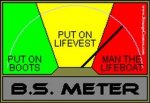BrettNortje
Banned
- Joined
- Jul 14, 2016
- Messages
- 793
- Reaction score
- 22
- Location
- Cape Town
- Gender
- Male
- Political Leaning
- Centrist
All over the third world there is a need for job creation. this stems from the populace not being able to find work, and, of course, this impoverishes both the state and the people. this means the impetus or urgency to create jobs lies on the public sector and leaders, of course. luckily they can pass laws to promote this job creation, of course.
So, if the state wants to hire more people or create jobs, they need to make it more comely than not changing. often, a business will see great gains and stay the same shape wise, reaping in the rewards of staying the same, or not changing, and seeing their bank balance do well. we need [1] to make it more comely to see the business expand, or, we need to [2] make it comely to banks to loan money for start ups.
[1] With expansion, the business should be given 'tax reduction incentives' to make it cheaper to expand than to stay the same. this could be where the income tax paid by the employees at the business could be split between the state and the business, leading to more employees, obviously, and then the same or more taxes in total.
~ The state should bear in mind that if there is more money in total being earned, then there is more of a sales and other taxes collected that could come back to the state, meaning they lose hardly anything with splitting income taxes, and they make a lot more through money entering circulation.
[2] For lending money to start ups, the state could write it into law that for every fixed deposit amount, which the banks love, they allow a set dividend of that to the start up scheme?
So, if the state wants to hire more people or create jobs, they need to make it more comely than not changing. often, a business will see great gains and stay the same shape wise, reaping in the rewards of staying the same, or not changing, and seeing their bank balance do well. we need [1] to make it more comely to see the business expand, or, we need to [2] make it comely to banks to loan money for start ups.
[1] With expansion, the business should be given 'tax reduction incentives' to make it cheaper to expand than to stay the same. this could be where the income tax paid by the employees at the business could be split between the state and the business, leading to more employees, obviously, and then the same or more taxes in total.
~ The state should bear in mind that if there is more money in total being earned, then there is more of a sales and other taxes collected that could come back to the state, meaning they lose hardly anything with splitting income taxes, and they make a lot more through money entering circulation.
[2] For lending money to start ups, the state could write it into law that for every fixed deposit amount, which the banks love, they allow a set dividend of that to the start up scheme?

